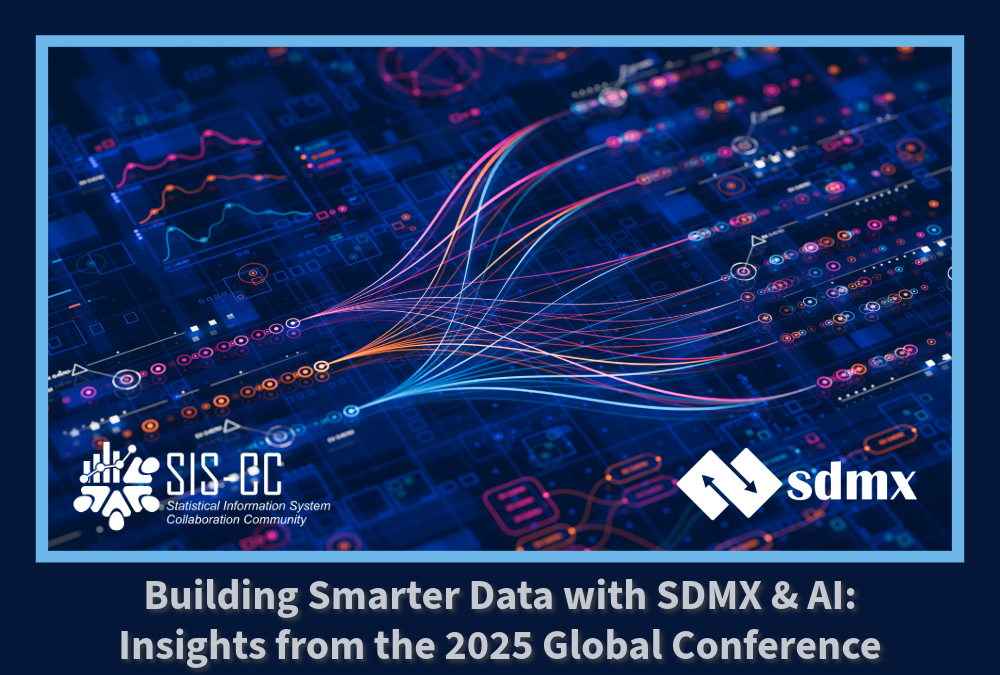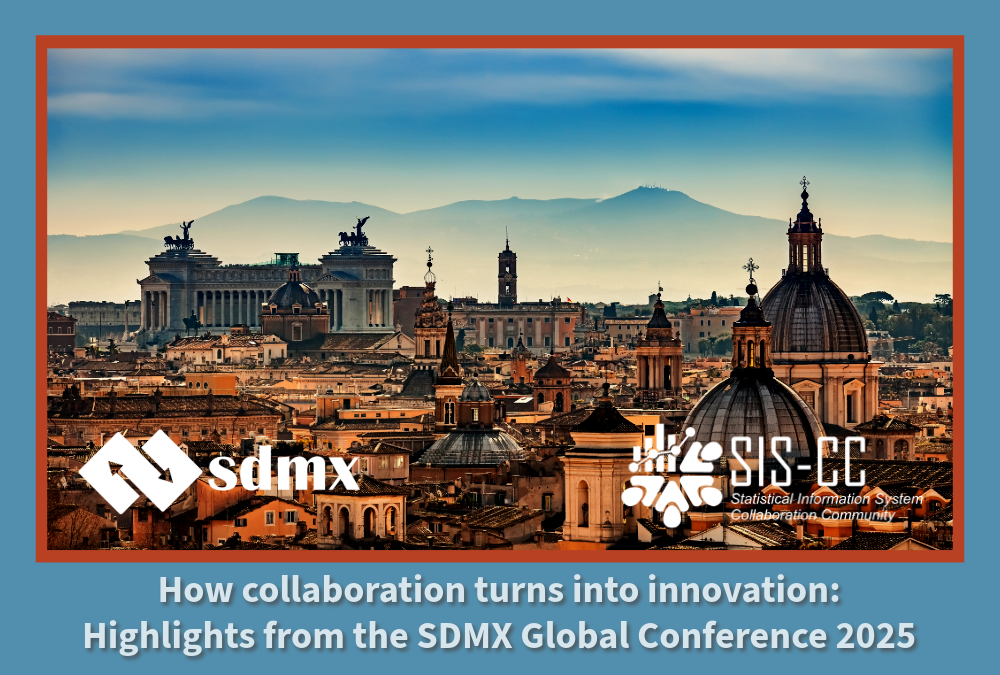In an era of data-driven decision making, the ability to seamlessly exchange and harmonise statistical data across platforms is critical. The integration of two of the most prominent SDMX platforms, the Fusion Metadata Registry (FMR) Workbench with the .Stat Suite, represents a significant milestone in advancing interoperability and fostering open-source collaboration within the realm of official statistics.

“This project is about convergence in a way that is “user driven”, using a pragmatic approach to meet the user need with the resources in hand. The product is now shipped directly in the .Stat Suite: it’s a huge step forward in that OECD data producers will be able to maintain SDMX structures using FMR advanced features and external API users might profit from having access to OECD SDMX registry and be able to navigate the semantic of OECD data; this should help them design their OECD data sourcing approach. Eric Anvar, Head of Smart Data, OECD
This initiative, developed in collaboration between the Organisation for Economic Cooperation and Development (OECD), Bank for International Settlements (BIS) and National Bank of Belgium (NBB), and embraced by the SIS-CC community, is more than a technical enhancement; it’s a vital step to ensure that official statistics continue to meet the growing demands of our data-driven world.
“The integration has meant significant progress in terms of the user experience for the SDMX community. The user-friendliness of the FMR Workbench has smoothed the learning curve, making SDMX more easily accessible for a wider public.”
José Vereecken, Business IT Analyst, NBB
Breaking down barriers through interoperability
Ensuring the interoperability of statistical data across different systems has been a longstanding challenge for data custodians and users alike. But with the increasing adoption of the Statistical Data and Metadata eXchange standard (SDMX), the need for tools that can effectively manage and translate data formats became even more pressing. The FMR Workbench is designed precisely to meet this need, offering a smart solution for managing data structures, mappings, and reporting formats.
“Integrating FMR Workbench with .Stat Suite significantly advances usability of SDMX tooling, creating a combined data management and dissemination solution that is greater than the sum of its parts. The BIS experience shows that FMR Workbench provides .Stat Suite users with a powerful web user interface for exploring, authoring, and editing the structural metadata and data models that underpin the statistics being published.”
Rafael Schmidt, Head of MED IT, BIS
The integration of the FMR Workbench with the .Stat Suite represents a significant step towards interoperability. By streamlining the process of handling diverse data formats, this integration enhances the capability of statistical organisations to share and use data more efficiently, and in a way that better addresses the complexities of modern statistical data. This efficiency not only supports better decision-making but frees up resources that can then be redirected towards more strategic initiatives.
“The FMR workbench materialises the will of the OECD and BIS to converge, co-invest and co-innovate. It is an excellent example of two fully interoperable tools, underpinned by a common standard, that brings more value to final users by joining forces in a smart way.”
Eric Anvar, Head of Smart Data, OECD
Driving impact through open-source collaboration
At the heart of this integration is the spirit of open-source collaboration, a cornerstone of the SIS-CC’s mission. The .Stat Suite and FMR Workbench are both products of collaborative efforts, combining global expertise to solve common challenges. This approach not only accelerates innovation but ensures that the solutions developed are sustainable, scalable, and accessible to all.
Yet the impact of this integration extends beyond technical efficiency; it represents a shift towards more inclusive and collaborative practices in the world of official statistics. By breaking down silos and fostering interoperability, the integration empowers statistical organisations to work together more effectively, enhancing the quality and availability of data for decision-makers everywhere.
“The integration was fundamental as it’s the only way we can incorporate the tool in our stack for unlimited usage within OECD and SIS-CC partner organisations. Open-source is the only model that allows a co-investment approach (each public organisation investing its share into a common good, a public open asset). A commercial model can achieve the same result on very large and fluid market setting the standard; but for a niche market like ours, the commercial model leads to vendor lock-in preventing innovation and co-investment.”
Eric Anvar, Head of Smart Data, OECD
Moreover, by adopting a standardised approach to data management, organisations can improve data consistency and reliability, crucial factors in maintaining the trust of users and stakeholders alike. As the demand for high-quality, timely data continues to grow — especially in areas like monitoring progress towards the Sustainable Development Goals (SDGs) — such enhancements in data management are key.
“Open source is fundamental to the commitment to provide software as public goods.. Given the positive social and economic benefits associated with quality official statistics, the case for investing in developing enabling software is overwhelming.”
Rafael Schmidt, Head of MED IT, BIS
Looking to the future
In a rapidly changing world, the ability to adapt and innovate is key. The FMR Workbench integration with the .Stat Suite exemplifies how embracing interoperability and open-source collaboration can lead to transformative outcomes. By empowering statistical organisations to better manage and share their data, this initiative is helping to ensure that the insights derived from official statistics continue to drive positive change on a global scale.
“The successful integration of FMR Workbench with .Stat Suite demonstrates the power of close coordination and dialogue for delivering high-quality integrated solutions that address users’ concrete needs, efficiently and at pace. Further collaboration with both the OECD and other partners, including SDMX sponsor organisations and interested central banks, is planned under the BIS’s sdmx.io initiative which brings together open-source tools, patterns, guidance, learning resources and more into a cohesive and interoperable ecosystem centred on SDMX.”
Rafael Schmidt, Head of MED IT, BIS
The SIS-CC’s commitment to fostering open-source collaboration and interoperability is paving the way for a more connected and cohesive statistical ecosystem. As we look to the future, the SIS-CC’s ongoing efforts to enhance interoperability and support open-source solutions will undoubtedly play a crucial role in ensuring statistical data is more accessible, interoperable, and impactful.
“The extension of the FMR Workbench with the Excel Matrix Generation functionalities, by using wizard-based screens to make a full lifecycle for new data, will be a great step forward in the user experience and provide greater autonomy for NBB data producers.”
José Vereecken, Business IT Analyst, NBB


